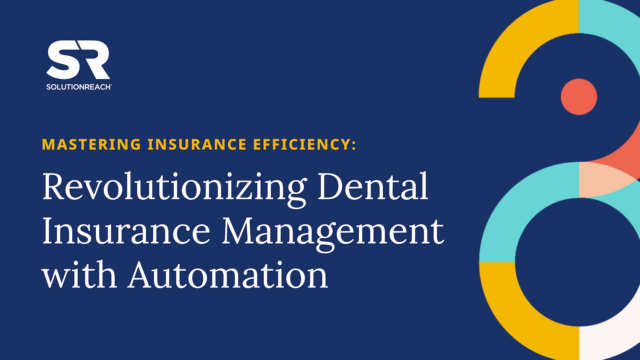83% of Americans suffer from work-related stress. And that was before COVID. On a daily basis, more than half of us experience job stress during the workday, and women have higher stress levels than men.
So, if you’re a bit overwhelmed at work these days, especially if you’re running a busy dental, vision, or healthcare practice, you’re not alone. Most people experience workplace stress as a result of things like:
- Interpersonal conflict
- Disorganization
- Multitasking
- Physical discomfort
- Emotional exhaustion
While some common stressors are beyond your control – like other people’s attitudes and behavior – others are totally manageable.
It’s no small feat to rise above the sea of stressful situations in the office chaos and keep a positive attitude while you’re thrashing around, trying to stay afloat, hoping somebody comes along and throws you a life jacket – or better yet, a life raft. I may not be in the office with you, but I’m hoping I can provide a few “life jackets of information” – maybe even a rowboat – so you can not only get your head above water but start floating peacefully or even rowing in a whole new direction while recognizing the symptoms of stress.
Go from disorganized to prioritized.
If feeling overwhelmed at work is the result of disorganization, you can do something about it today. Start by prioritizing your to-do list. Is your desk a stack of patient billing or charts? Start by organizing your work environment so that when you get to the office each morning, you feel more at ease in your surroundings.
What tasks can you delegate to your team? Consider automating the busywork, including appointment reminders, patient recall, and patient intake forms. When you’re not knee-deep in time-consuming tasks, like making phone calls or sending emails, you can focus on bigger projects, like improving the patient experience, and growing your practice through patient education. This requires effective decision-making regarding what tasks are best suited for delegation, which can streamline your workload and reduce chronic stress.
Breathe in. Breathe out. Repeat.
It seems simple enough, but when you’re in the middle of the chaos of managing a busy office, you can forget to really breathe. You might be amazed that after taking several slow, deep breaths while counting to five, then releasing your breath for the same count, you’ll feel calmer physically and mentally. Then, you can center yourself and give your attention to the next highest priority task at hand.
Do less multitasking.
Up until a recent study, it was generally believed that women could outperform men at the art of multitasking. (It was a small study, so as far as we know, there still may be some truth to the assumption!) However, one thing we do know for sure is that multitasking causes your brain to switch rapidly between tasks and puts a strain on cognitive resources. In other words, your brain gets tired of doing too many things at once!
So, focus on one activity at a time or one aspect of patient relationship management each hour. That way, you are giving your full attention to that project or patient before moving on to the next, or trying to juggle them simultaneously. Less multitasking could actually lead to better work and patient relationships, help you get more accomplished during the day, and help you feel less overwhelmed and stressed. Ahhh …
Let patients schedule themselves.
That’s right. Let patients book their own appointments.. If your practice doesn’t yet offer online doctor appointment scheduling, then you haven’t delegated enough repetitive tasks. It takes eight minutes or more to schedule a patient by phone, but only a minute or two – if that – for a patient to request a convenient appointment time at your practice.
And, don’t worry – you’ll still have complete control over the schedule. You decide when patients can book appointments, which type of appointments are available for online scheduling, and how long each one takes. Voila! Check “automate patient scheduling” off your to-do list. (Incidentally, the majority of your patients want to book appointments online, so give them what they want and boost patient satisfaction while you’re at it.)
So as not to overwhelm you with even more ways to become less stressed, I’m ending the blog here. In the meantime, follow what healthcare professionals say and try to get some exercise, practice self-care, and balance your work and personal life so you don’t experience burnout.
Effective stress management is crucial in maintaining mental health and overall well-being, understanding the various risk factors that can contribute to elevated levels of stress, and ultimately, affect your job satisfaction.
Want to learn more about patient self-scheduling? Download the guide, “The Perfect Appointment Workflow A Path to Improved Patient Outcomes and Increased Revenue,” to save time, achieve work-life balance, lower your stress level, and improve patient satisfaction!



